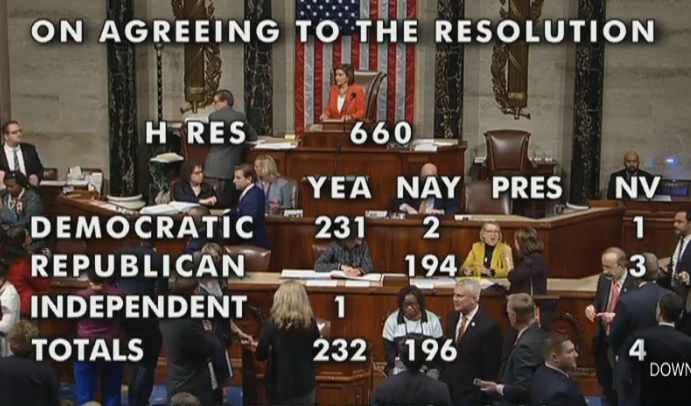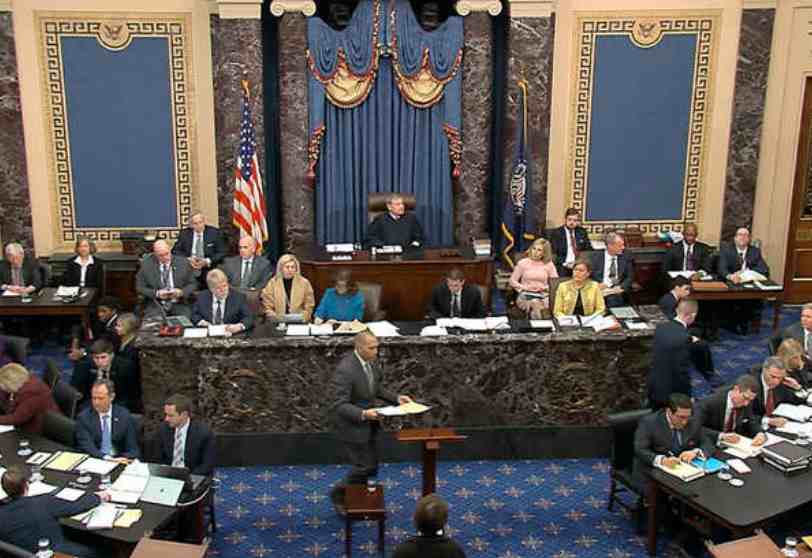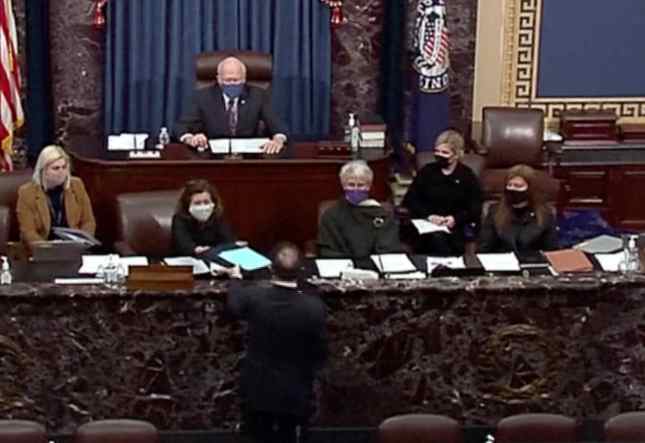U.S. Homeland Security Secretary Alejandro Mayorkas is facing a Senate trial in two weeks after Republicans in the House of Representatives impeached him by a single vote, blaming him for the tens of thousands of illegal migrants who have crossed into the U.S. from Mexico in the past year.
The trial is set to unfold on February 26 when House impeachment managers, a contingent of Republican lawmakers acting as prosecutors against Mayorkas, formally walk the charges across the U.S. Capitol to present their case to the 100 senators, who will be acting as jurors.
How long the effort might last, or whether any evidence will be presented, is an open question.
The House vote Tuesday night was 214-213 to impeach, but Democrats hold a 51-49 voting edge in the Senate and have been openly disdainful of the impeachment effort targeting a key official in Democratic President Joe Biden’s Cabinet.
The Democrats could quickly vote to dismiss the impeachment case against Mayorkas without hearing evidence or shuffle the case off to a committee where nothing would happen. Or evidence for and against Mayorkas could be heard.
In the Senate, a two-thirds vote would be required to convict the 64-year-old Mayorkas and remove him from office, meaning at least 18 Democrats would have to join all 49 Republicans in favor of a conviction.
Mayorkas is the first Cabinet chief to be impeached since Secretary of War William Belknap was tried on corruption charges in 1876 shortly after he resigned. He was then acquitted in a Senate trial.
Mayorkas has characterized the impeachment case against him as baseless and says he is continuing to do his job.
Biden defended him after the House vote.
“History will not look kindly on House Republicans for their blatant act of unconstitutional partisanship that has targeted an honorable public servant in order to play petty political games,” he said.
Representative Mark Green, chairman of the House Homeland Security Committee, led the impeachment effort against Mayorkas, saying in a Wall Street Journal opinion article that it was “the right thing to do.”
Green said Mayorkas “directed the release of millions of inadmissible aliens into the country” and “breached the public trust, both by violating his statutory duty to control the border and by knowingly making false statements to Congress.”
The Republican complaints against Mayorkas are effectively a proxy war against Biden’s handling of border issues and certain to be a prime issue in the November presidential election, where Biden is again likely to face former Republican President Donald Trump after defeating him in 2020. Trump says his tougher immigration stance is needed to secure the border.
A bipartisan group of senators proposed the toughest migration controls in years, and Biden supported the effort, but Senate Republicans rejected the measure last week after Trump said it was not tough enough.
Aside from the details of the control of the southwestern U.S. border, Democrats and some outside legal experts have questioned whether the impeachment of Mayorkas meets the U.S. Constitution standard, which says it is reserved for those who have committed “high crimes and misdemeanors,” not merely because Republicans oppose the way border controls are being enforced or not.
University of Missouri law professor Frank O. Bowman told a committee investigating Mayorkas that impeachment “is not supposed to be a routine tool to resolve ordinary public policy debates, even very passionate ones.” He said Mayorkas had not committed the serious types of offenses that impeachment is meant to be used for.
“The House has a constitutional responsibility, as I’ve said many times. It’s probably the heaviest next to a declaration of war. And we have to do our job regardless of what the [Senate] does,” said House Speaker Mike Johnson, who supported the impeachment effort.
[content id=”52927″][content id=”79272″]








